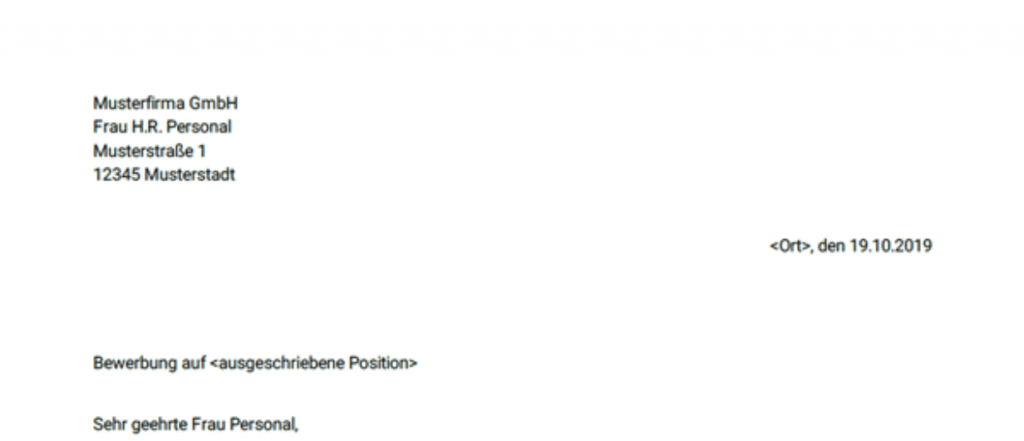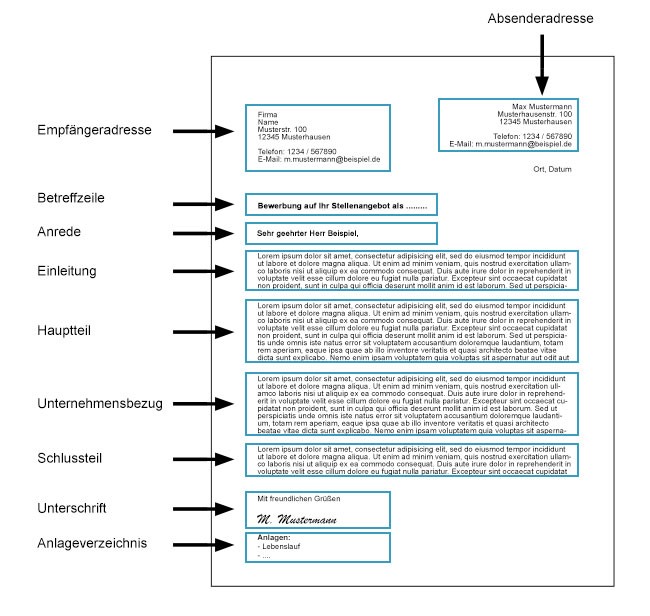How do I write a successful CV in German? What are the rules for writing a CV? What should not be included in a CV? Tips for writing a German CV and learning new vocabulary!

Germany is a comfortable country to live and work in with decent wages: if you are officially employed, you will earn at least 9.50 euros per hour in any position, and the minimum wage is about 1500 euros per month. Nevertheless, the job search process in Germany is long, tedious and quite a chore, because Germans love documents and letters. So today, we’re going to discuss how to write a good CV to find a job in Germany.
Germany is quite friendly to foreigners who want to work in the country. According to Deutsche Welle, since March 2020, Germany no longer has a “competitiveness test” (i.e. previously the employer had to prove that no German or EU citizens apply for the job in question) and it is possible to find a job even with secondary education. It goes without saying that the competition for prestigious jobs is high. Therefore it is important to present yourself as professionally as possible and to do so you have to leave a good CV.
Nowadays, the Bewerbungsunterlagen (German Document Preparation Service) recommends that the application package consists of several parts:
- Anschreiben (cover letter)
- Deckblatt* (the “cover sheet” – the first page of your documents)
- Lebenslauf (curriculum vitae, CV)
- Zeugnisse (“documents proving your education and qualifications; recommendation letters are also possible)
- Dritte Seite* (“third page” – language certificates, certificates of further education, qualifications, publications, diplomas, project descriptions etc.)
By the way, copies of your documents and diplomas will be especially welcome in the Bewerbungsunterlagen, so it is always good to have a proof of the stated information. Don’t hesitate to enclose copies of your certificates or diplomas from additional courses you have taken – everything is good for persuasion. Of course, this should be relevant, it’s silly to say that you’re a level 4 chess player if the job is a web-designer.
Very important: Never send your original diplomas and certificates by mail! They probably won’t be returned to you once they’ve been processed, so you might just lose them.
Now on to the hard part.
Lebenslauf (CV)
Otherwise also called CV, from the Latin expression Curriculum vitae – “life path”. Here you enter information about yourself, your studies and your professional experience. It can be broken down into the following sections:
- Persönliche Daten (personal information: name and surname, date and place of birth, place of residence, contact details)
- Studium (education)
- Beruserfahrung (places of practice and work)
- Auslandserfahrung (study / life abroad)
- Fremdsprachenkenntnisse (foreign language skills)
- Sonstige Kenntnisse (other knowledge)
- Ehrenamtliches Engagement (social engagement)
When entering your personal data, please make sure that you indicate your nationality and, if available, whether you have a permit to work in the country. You can also attach a photo, but it’s important to remember that a photo from a party or an adventure is not acceptable. It’s best to go to a photographer and have a professional portrait photo taken specifically for your job search.
→ Next, when listing places of study or work, remember that Germans are often described as “Ordnung” (order) for a reason. Make sure you follow a logical principle when listing, usually chronological. Start with the earliest and end with the latest.
→ When talking about your studies, indicate whether you have a Diploma, Magister, Master or Bachelor. Tell a little about your course of study (Hauptfach) and the focus of your studies (Schwerpunkte). Are you also doing a university placement abroad? Great, write about it, under the heading Auslandserfahrung!
By the way, it is often recommended to divide the information in this ratio: if you are a beginner worker, you should devote 80% to your education and social activities and 20% to personal data and “other knowledge”. If you are an experienced worker, 60% should be for work experience, 30% for education and 10% for personal details.
→ When listing jobs or internships, don’t forget to summarise the main point of the work you did, stating your role. For example:

Try to avoid “empty” periods in your biography when you have not been studying or working. Don’t use the word “unemployed” (arbeitslos), indicate that you devoted this period to finding yourself, a new job, or further training and self-development. Don’t be afraid to specify a career change, such employees are valued today: the ability to adapt to a constantly changing world is a great talent.
→ The “Sonstige Kenntnisse” section means that you list what computer programs, tools and other useful skills you have – as long as they are useful for the job in question.
→ Social activities will be particularly useful for young professionals without impressive work experience. This could include volunteering for a social organisation, organising projects and taking part in conferences and competitions. By the way, volunteering experience (specifically helping people or animals for free) is highly valued in Germany.
Tip: Many German profile websites offer templates (Muster) for compiling a Lebenslauf in the form that employers expect from candidates. You can download them and replace the content with your own. Also read German websites with tips for writing a Lebenslauf at least to pick up useful vocabulary and professional words.
Bewerbungsanschreiben (Anschreiben) – Cover letter
This is undoubtedly the most difficult part. If your curriculum vitae (Lebenslauf) can be as long as two pages, it is best to keep it to one page. Your task is to convince the employer that he needs you in 3 or 4 paragraphs.
You should start with the traditional “header” – the recruiter’s contacts, the headline and the address. Here is an example:

Before writing your Anschreiben, make sure that you have researched the information about the company you intend to apply to.
Study the company website carefully:
- What attracts you to the company
- What exactly you want to work with as part of their business
- How your skills and experience will be useful in the new job
Anschreiben can be written focusing on the 4 W-questions:
- Wer bist Du? (who are you?)
- Was kannst Du? (What can you do?)
- Warum willst Du gerade zu diesem Unternehmen? (Why do you want to join this company?)
- Was hat das Unternehmen davon, wenn es Dich einstellt? (What does the company benefit from if it hires you?)
Lebenslauf shows the professional and personal qualities of the job seeker, while Anschreiben shows his motivation and personal interest in the position. You can even add some emotion to make your desire to work for this company more convincing. Don’t just copy the Lebenslauf word for word. Put your successes to illustrate your motivation and need for the company. It is very important not to be unsubstantiated.

Don’t be afraid to repeat yourself – they will probably only read one of two things: either your curriculum vitae or your letter. Therefore, you can again talk in different words (and, as we wrote earlier, highlighting the main successes) about the experience you have already had. Use the following turns of phrase: “ich möchte die erworbenen Kenntnisse verwenden” or “ich würde gerne meine fachlichen Kompetenzen zur Verfügung stellen”.
Grammatically, it is advisable to avoid cumbersome, very long constructions. But use actively the professional language of your chosen industry! These are usually different nouns, select them beforehand and distribute them throughout your text. When talking about your knowledge and achievements, use affirmative constructions in the present and past tense: ich kann, ich habe mich beschäftigt, ich habe gelernt, ich habe erfüllt. When talking about a possible future job in a given organisation – subjunctive constructions: ich würde, ich möchte gerne, ich würde mich freuen.
It is also very important not to make mistakes in the text.
Tip: It is highly recommended that you find a native speaker (and with the internet and numerous language exchange and tutoring platforms, this can even be done for free) so that he or she can “polish” your documents.
Don’t praise yourself too much; it is considered bad form. It is the employer’s job to evaluate you. Also, don’t embellish your experience and knowledge by making things up. Believe me, HR-workers interview a dozen or more people a week, and they can easily distinguish the lies from the truth.
You could, for example, mention one characteristic of you that fits the job perfectly. For example, teamfähig (team worker), kontaktfreudig (communicative), stressresistent (stress-resistant). But you shouldn’t randomly insert characteristics without explaining them. If you call yourself a leader, then affirm: “I am a leader because… (implemented my own charitable project).” If you write about communication skills – “In a previous job, I was in charge of negotiations or was in charge of team-building. Plus, mention that you see yourself in this job “seriously and permanently”.
The conclusion is the traditional one:

Now, put the finished documents neatly in an envelope and run to the post office! Of course, sending them to an e-mail address is often enough, but sometimes German employers prefer the traditional method as well. So if you have your life’s work ahead of you, take advantage of all delivery options.
Do you want to get your German language learning planner?
Dive into a World of German Mastery with Leo. Over 7500 enthusiasts are already unlocking the secrets to fluency with our tailored strategies, tips, and now, the German language learning planner. Secure yours today and transform your language journey with me!







